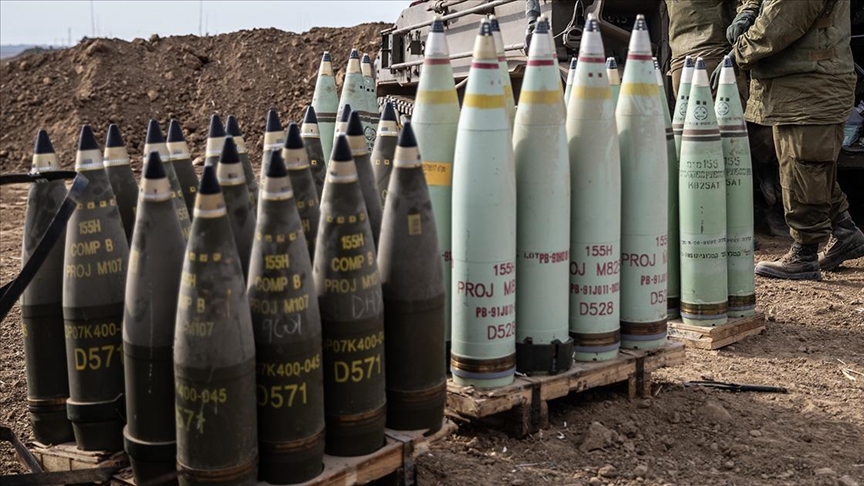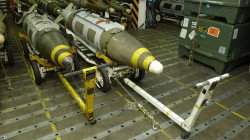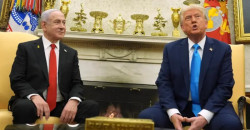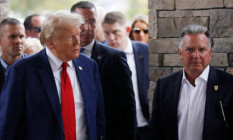Israel's firepower grows: US delivers major arms amid ongoing conflicts

Shafaq News/ The US has approved a major arms shipment to Israel, Yedioth Ahronoth reported on Tuesday, as the Israeli military continues operations in Gaza and prepares for potential strikes on Iranian nuclear sites.
According to Israeli officials cited by the newspaper, the shipment will include more than 3,000 munitions for the Israeli Air Force, aimed at supporting ongoing operations in Gaza. An additional 10,000 aerial munitions are expected to replenish Israel's stockpiles following 18 months of sustained combat across multiple fronts.
The new delivery follows a previous deal for heavy munitions purchased from the US last year, after the Trump administration lifted a freeze originally imposed under President Joe Biden.
In February, the US government approved a $7.41 billion arms package for Israel, including precision-guided munitions and related equipment. The Pentagon’s Defense Security Cooperation Agency (DSCA) notified Congress that the deal was intended to maintain Israel’s defensive capabilities.
That announcement followed an earlier notification in January regarding a separate $8 billion weapons package.
Under the agreement, Israel will use US military aid funds to purchase 3,000 Hellfire missiles valued at roughly $660 million, along with 2,166 AGM-114 guided bombs.
The deal also includes 2,166 GBU-39 Small Diameter Bombs, approximately 13,000 JDAM (Joint Direct Attack Munition) guidance kits, and over 17,000 FMU-152A/B electronic fuzes, as part of a separate $6.75 billion agreement.
Delivery of the Hellfire missiles is scheduled to begin in 2028, with the other munitions expected to arrive starting in 2025.
According to the Pentagon, the equipment will be sourced from existing US military stockpiles and American defense contractors, including Lockheed Martin, Boeing, and L3Harris Technologies.
In a formal statement, the Pentagon said the transfer would not alter the regional balance of power but would enhance Israel’s ability to defend its borders, critical infrastructure, and civilian population.





